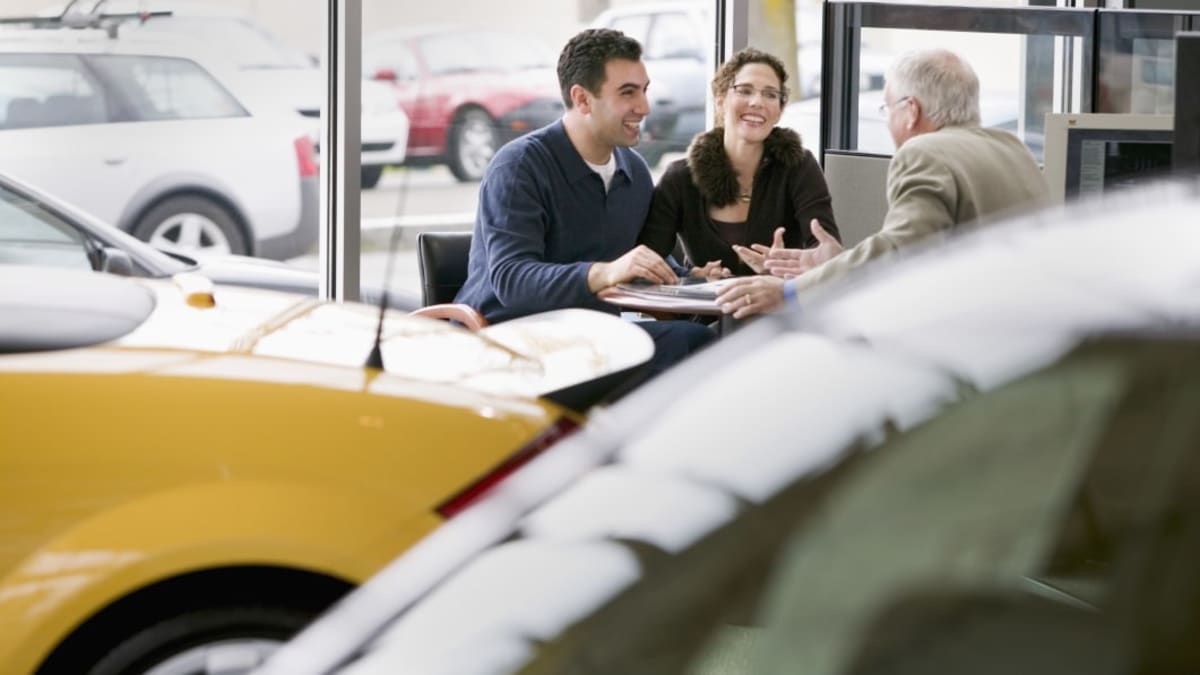This is part of our Car Buyer's Glossary series breaking down all the terms you need to know if you're buying a new or used car from a dealership.
A down payment is the amount you pay up front when you finance a new vehicle. Right? What more is there?
Well, a lot. But you've got the basics down. The down payment is indeed the money you pay at the time of purchase. The down payment is determined when you apply for financing. There is usually a minimum down payment for a given loan, although it's usually not a problem to put more money down than that.
Generally, you want to make a down payment equal 20% of the value of the vehicle.
20 percent? That's a lot! I don't have that kind of money laying around.
We hear you. It is a lot of money. But putting down 20 percent has a lot of benefits. Remember, the second you drive the car off the lot, it's a used car – and its value is lower instantly. And it continues to fall as you put miles on it. That's just a fact of life when you buy a car.
But putting money down "neutralizes" this loss of value. If something wild happens – like a meteor hits the dealer lot just as you're singing the paperwork – you won't have negative equity in the car. That means, you won't owe more than it's worth.
A meteor, huh? Well I'm not worried about that.
It was a ludicrous example, but this is a dry subject and spicing it up a bit helps. Right?
[Sigh]
OK, back to the subject at hand. Putting more down up front will save you a lot in interest down the road. Anything that's rolled into your loan, you pay interest on. And if your credit score is good but not great, putting more money down will help you get a more attractive loan. Remember, the less the bank has to loan you, the less risk is involved for the lender. Lenders hate risk.
This all sounds great, but have you seen my bank account?
Well, if you need to put less money down, you can protect yourself to some degree with gap insurance. For some buyers, it's a good move.
You can read more about gap insurance here.
And there's also your trade-in! That counts as part of your down payment. Make sure you know what a fair trade-in value will be for your car before you go into the dealer. Trade-in values are generally much lower than what you could get by selling the car yourself. The dealer has to make a profit, after all. But unless your trade in is a total heap, it'll put a dent in what you have to put down.
Should I get all the french fries out from under the seat before the dealer sees my trade in?
Yeah. Go do that. And also you're making us hungry for french fries.
Sorry? (Not sorry.)
Must be lunchtime. Anyways, would you like to put zero money down on your next car?
Hey, what gives? You've been telling me to do 20 percent the whole time here!
You're right. Zero percent down deals are really intended to get people in the door. Once they're there, they might find out they don't qualify for such a deal. You need really excellent credit to do this. And also, it's not great for you from a financial standpoint for all the reasons we mentioned above. It's expensive over time, you'll have no equity in the car, and you're probably not going to even get it. Remember, just because you can do something doesn't mean you should. Like getting french fries instead of a salad.
OK, enough with the food analogies.
Sure thing. We're pretty much all done on the subject. While you don't have to put 20% down on every loan in every circumstance, it's a good rule of thumb and starting point for you to think about the how and why of down payments. Good luck with your purchase!


Sign in to post
Please sign in to leave a comment.
Continue